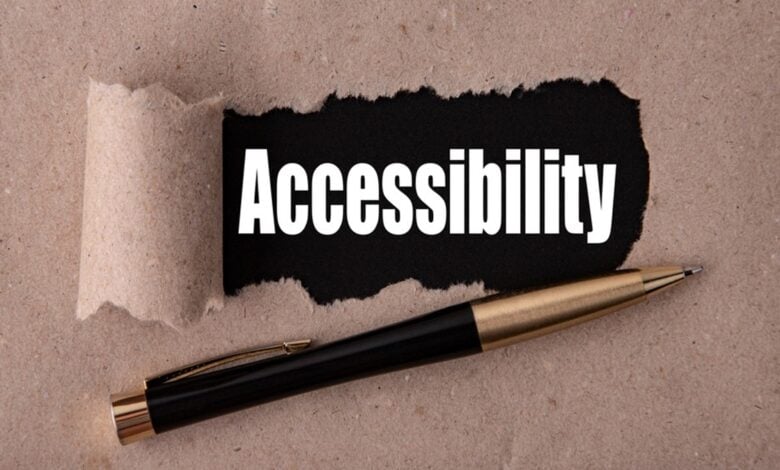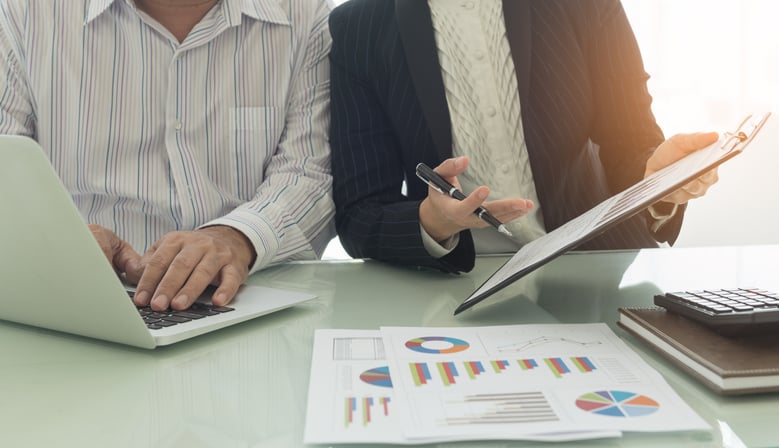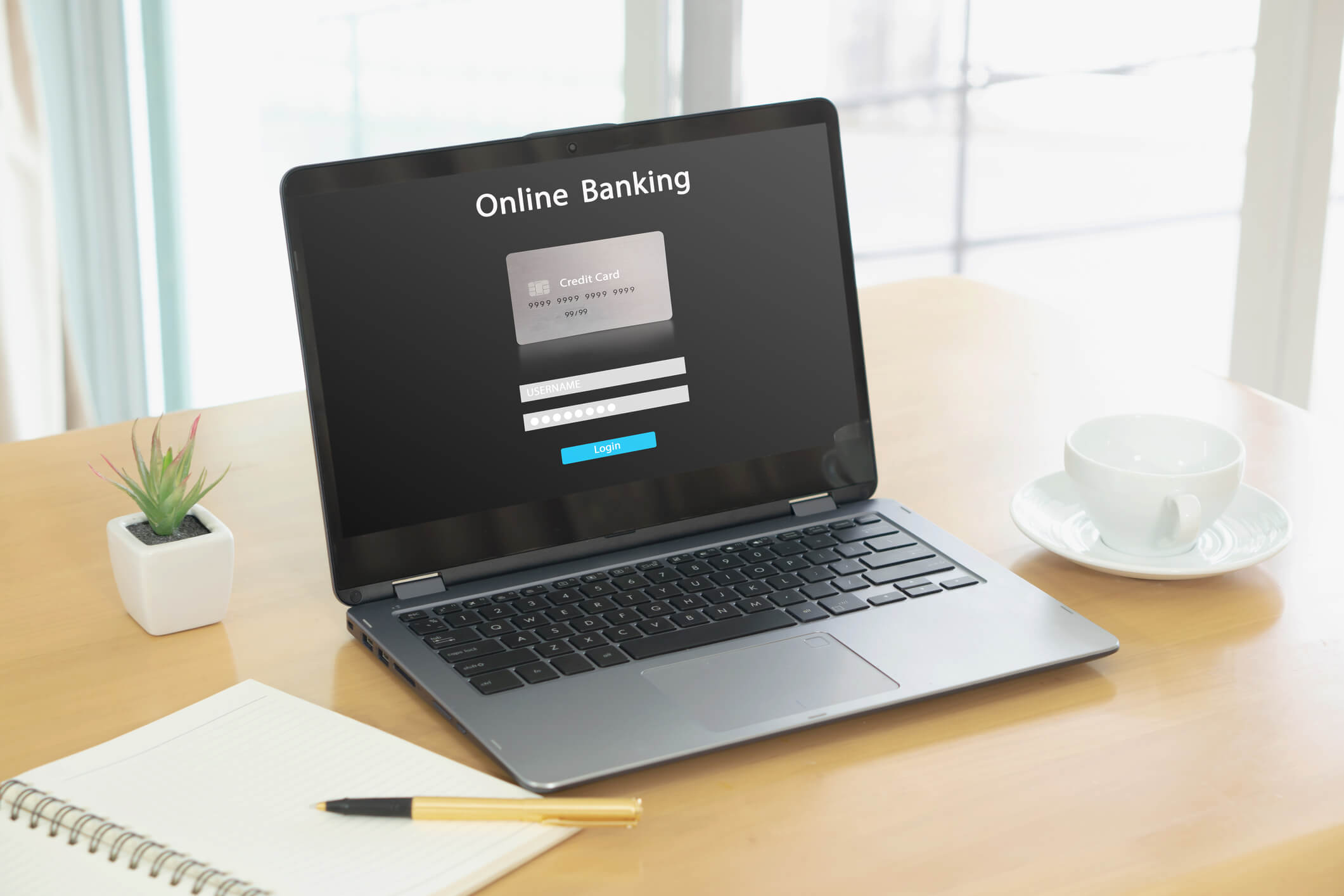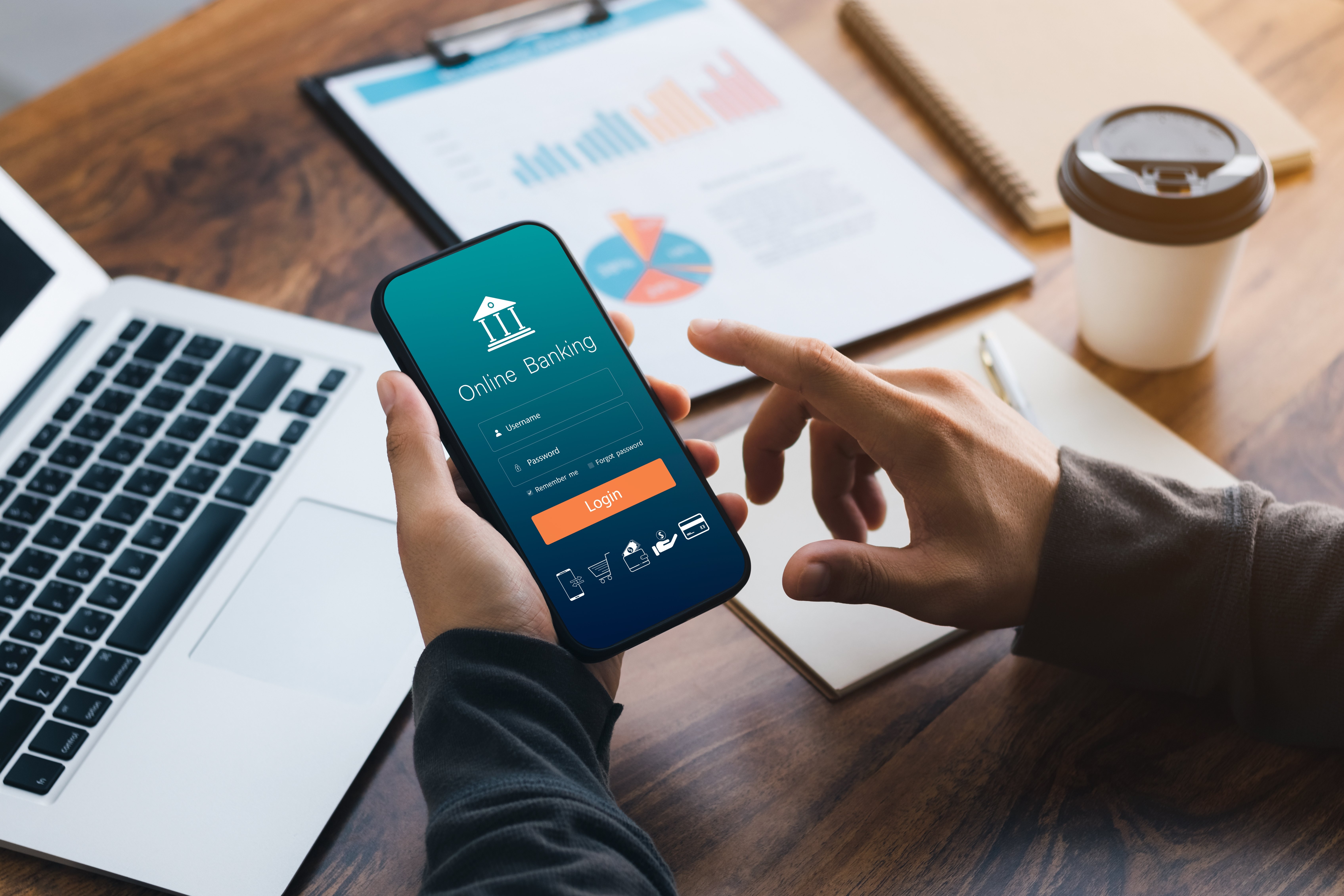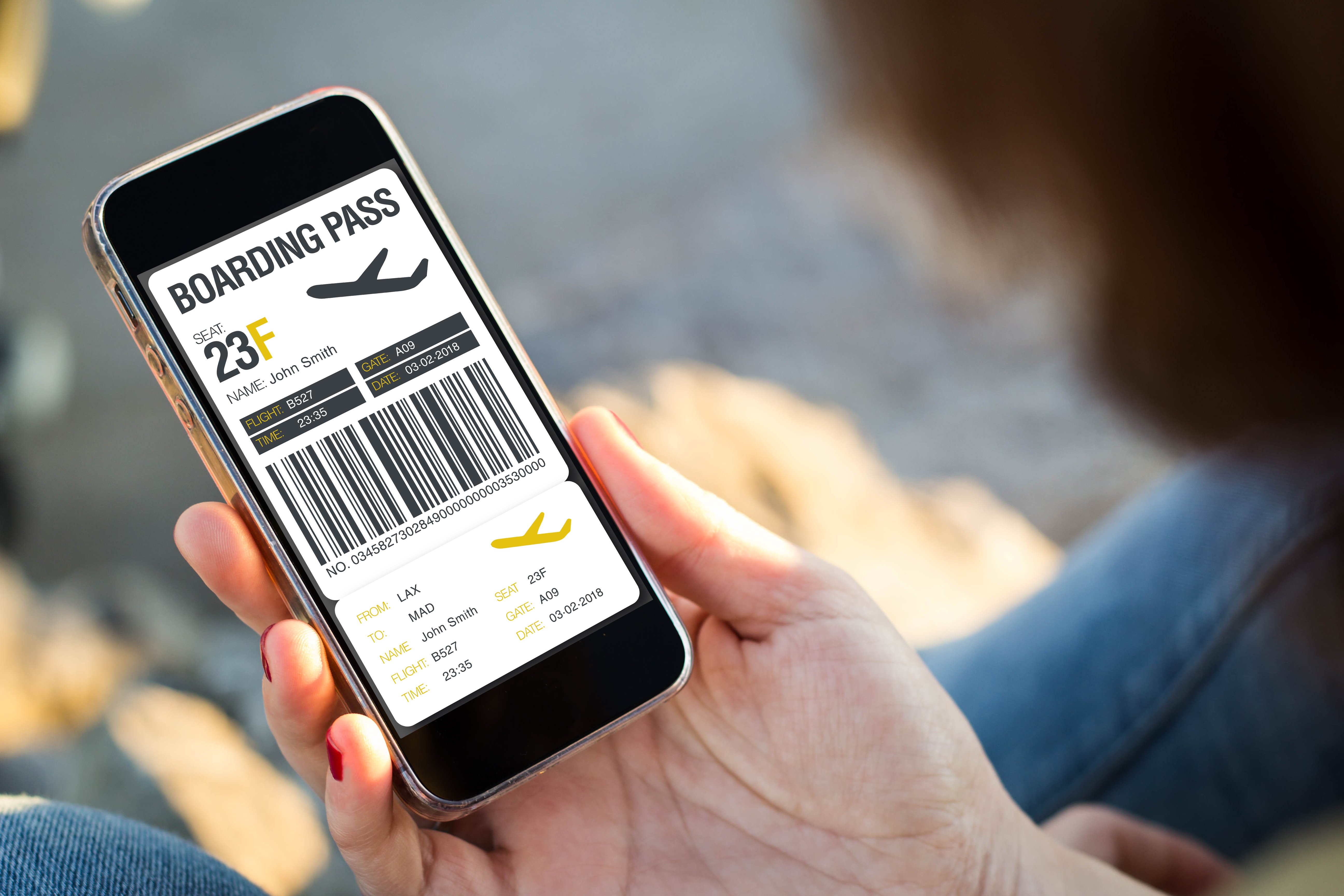To celebrate Global Accessibility Awareness Day (GAAD), we've asked folks involved in accessibility to tell us what digital accessibility means to them.
We're sharing their video answers and the full transcripts here. We hope you can use it as inspiration to start meaningful conversations about the importance of accessibility and inclusion. Happy GAAD 2024!
Jeff Adams, CPACC, Vice President - Accessibility Operations at UsableNet

Alt-text: Jeff Adams, a white man wearing glasses and a black polo shirt sits behind a microphone and speaks directly to the camera.
Jeff emphasizes the importance of Global Accessibility Awareness Day and the 25th anniversary of the Web Content Accessibility Guidelines, urging companies and individuals to prioritize accessibility
"After 25 years, it's surprising we're still living in a time where the majority of websites and apps are not accessible. And what that means is a significant number of people cannot access the products, the services, the information that is available on those websites and apps."
Jeff's Full Video Transcript
Hi, I'm Jeff Adams, Vice President of Accessibility Operations at UsableNet. As we commemorate Global Accessibility Awareness Day in 2024. We also have the 25th anniversary of the Web Content Accessibility Guidelines. After 25 years, it's surprising we're still living in a time where the majority of websites and apps are not accessible. And what that means is a significant number of people cannot access the products, the services, the information that is available on those websites and apps. Whether that means they can't shop for products, maybe not receive emergency information from local governments, order food from a favorite restaurant, or maybe book appointments with their physician.
It is my hope that companies around the world double down on making their digital properties accessible so that everyone can fully engage with what's available on the internet. And that means not only getting an audit and making remediations, but to actually establish a sustainable accessibility program within the organization so that accessibility is top of mind for every digital project that takes place. And that way everyone can benefit from what the internet has to offer.
But beyond companies taking on accessibility, I would like to see this conversation move beyond what we talk about at work and move into everybody's daily lives as well. So that anytime somebody is posting on social media, they're thinking about adding alternative texts to images. Or if perhaps they are solo entrepreneur who's running their own business, some side hustle, or even just having their own personal website where they're maybe keeping a blog or some other form of digital communication, that they're taking the steps to perhaps move what they've learned in the workplace over to actually being able to do that when they're creating digital content outside of the workplace as well. That will continue to make sure that everything on the internet can become truly accessible for everyone.
And that is the goal, right? That everybody has access to the information that's available and that no one is excluded from it. So I hope that's some of the things that you are thinking about on this Global Accessibility Awareness Day. Not only how to make a sustainable accessibility program within your workplace, but also how you can bring those practices into anything that you're personally posting online as well.
Jack McElaney, Publisher of Accessibility in the News

Alt text: Jack McElaney speaks to the camera. He's dressed in a dark suit and wears glasses.
Jack underscores the urgency of digital accessibility, particularly for the growing aging population.
"So, in other words, there's a lot of work that is ahead of us for all of us."
Jack's Full Video Transcript
Hello everybody. My name is Jack McElaney. I am the publisher of Accessibility in the News, and I am the Vice President of Sales and Marketing at Microassist. It is a pleasure to speak to you about Global Accessibility Awareness Day. The question has been posed to me, What does accessibility mean to me? It means that all organizations need to be aware and take steps to make digital assets and physical assets accessible to all.
The area I think we need the most awareness is with the aging population around the world. The U.S. Census Bureau estimates that by 2030, there will be 73.1 million Americans 65 years old or older, which is 21% of the population. And then, by 2060, the population will grow to 94.7 million Americans, or 23% of the population, will be over Sixty-five years old or older. And according to the Social Security Administration predictions over the past several years, about 10,000 Americans a day have turned 65. And based on the 2024 census data, approximately 4.1 million Americans or more than 11,200 Americans a day will turn 65, and it will remain at that the annual rate of 4.1 million through 2027.
So, what do all these numbers mean to us? All of these people have already or will be signing up for Medicare. And what is Medicare seeing? Eye diseases are increasing. Cataracts, glaucoma, macular degeneration, diabetic retinopathy. These are all diseases of aging and can lead to visual impairment or blindness. Hearing loss and hearing impairments are increasing. Chronic diseases like cancer, diabetes, dementia, Alzheimer's disease, and Parkinson's disease and other diseases are increasing. The most sought-after surgeries when people join Medicare are cataracts, knee replacement, hip replacement, and shoulder replacement.
So what does all this mean for digital accessibility? Digital awareness is critical to serving the aging and disabled population. Blindness and deafness, cognitive and mobility issues need to be considered with all types of websites, mobile applications, enterprise software, and kiosks. IVR systems need to be reviewed. Patient portals and telemedicine platforms need to be reviewed. Any of those that aren't accessible need to be remediated. New patient intake forms, which are typically Word of PDFs, need to be remediated. Public facilities and organizations will need to be more aware of the increased disabled senior citizens and the accessibility needs. Reservations at restaurants need to be looked at closely from the standpoint of reservation systems, and whether or not the floors within the restaurants are accessible and can accommodate multiple disabled people at a time. Same thing with hotels. How many actual accessible rooms do they have? And can a blind person or deaf person make reservations on the reservation system? Airlines are similar. How many types of accommodations do they have for people who are disabled? People who have wheelchairs, walkers, canes, and is their reservation system accessible? And the list goes on.
So, in other words, there's a lot of work that is ahead of us for all of us. So, I want to thank you for your time. I hope you have an enjoyable Global Accessibility Awareness Day.
Joseph DiNero, Assistant Program Director of Assistive Technology
Services at Helen Keller Services for the Blind

Alt-text: Still photo of Joseph DiNero wearing a dark suit and pink tie, standing in an office.
Joseph emphasizes the importance of digital accessibility in everyday tasks for individuals with disabilities, advocating for inclusive design practices and user testing to ensure equitable access for all users.
"Digital accessibility is ultimately about building bridges and not putting up barriers."
Joseph's Full Video Transcript
Good afternoon. My name is Joseph DeNiro. I am the Assistant Program Director of Assistive Technology Services at Helen Keller Services for the Blind. And I also am the Head of the Digital Accessibility Testing Team for UsableNet.
And, I'm thinking about Global Accessibility Awareness Day for 2024, and I have a lot of travel that I'm going to be doing for my jobs over the next few weeks. And I was thinking about, what is it? What is digital accessibility to me?
And when I'm thinking about like, what I have to do, you know, digital accessibility to me is the ability to when I get on a commuter rail, to be able to buy a ticket and to be able to activate that ticket on a train so that a conductor can, you know, validate that for me. Or to be able to purchase and check-in, whether it's whether I'm flying or or traveling via train, being able to, check in and use a digital key at a hotel.
So many things, and what it is also to me is that these companies that are providing those services to me are saying to me that I am important as someone who has a disability, that I am a customer, just like any other customer that they service.
And as we're moving through 2024, you know, some of the things that I'm thinking about as technology, as it always does is, is changing. and becoming a major thing. And now we have, you know, chatbots and smart devices and smart technology and, you know, part of digital accessibility as we're looking at these new, emerging technologies, is making sure that those are available to everybody that has, you know, a disability.
And one of the things I think that, you know, people don't think about is that having an accessible website or an accessible mobile app, you know, that doesn't just help people with disabilities. Sometimes it helps a lot of people that don't necessarily identify as someone who has a disability.
I can tell you personally that, you know, I know many people, for example, when they're using their mobile devices, they use the magnification features of the device to look at an app or to look at a website on their device. And, you know, that's using accessibility to access content.
And, I guess the last thing that, you know, I would say is, you know, if you're looking to you know, embrace this and you know, have your site or your app be accessible, one of the, one of the most important things is have user testing. A lot is made about automated testing, and it is a great tool and it finds a lot of things, but, you know, user testers, they're the boots on the ground if you will, in the digital accessibility space or in the digital world. They are the real-world users. So you're going to get real-world feedback from people that are doing this day to day. So it's very important to engage with user testers, you know, get help to support you in your digital accessibility road map. Digital accessibility is ultimately about building bridges and not putting up barriers.
John Egan, Partner at Seyfarth Shaw

Alt-text: John Egan speaks to the camera, he's a white man wearing a yellow tie and dark suit.
John reflects on the personal and professional significance of digital accessibility, advocating for inclusivity and the evolution of laws to create a more accessible world for people of all abilities.
"I think about how can we as practitioners be part of story and evolution that hopefully is going to result in a more accessible world, and a world that works for everyone: For people with disabilities, for covered entities, for employees, for business owners, both large and small, and how can we be part of that ever evolving story?"
John's Full Video Transcript
Hi, my name is John Egan and I'm a partner with the law firm Seyfarth Shaw. Happy Global Accessibility Awareness Day. It's my pleasure to be with you to talk about what digital accessibility means to me. It means family. I think about the folks with disabilities in my family who are no longer with us, who had hearing and visual disabilities. I think about screen reader technology and captioning and what it would have meant to them had that technology been in existence during their lifetimes. I think about my immediate family, folks who have dedicated their lives towards working with children with cognitive and developmental disabilities for over 40 years of family history where they've invested themselves not for money or fame, but to improve the lives of kids, of all abilities, to make their lives better every day. And I'm very proud of my family who've made those commitments.
As an attorney who specializes in disability access and accommodations, digital accessibility means professionalism and advocacy. I'm a lawyer who counsels and defends businesses in matters involving access and accommodations. I get to work with some famous brands and businesses that are on the leading edge of digital accessibility, and it's such an honor to work with them and to support them in their accessibility journey. I also am part of the largest team of attorneys that focus on this area of law in the country. Our ADA Title III team at Seyfarth is very much best in class. I've had amazing mentors over the years, and I have amazing folks who support me in my practice. And so from a professionalism standpoint, digital accessibility, you know, has a certain significance in that regard as well.
I'm also somebody who relishes being an advocate and I advocate on behalf of companies that are, doing the right thing, trying to do the right thing, and then sometimes they're treated unfairly, and I'm a zealous advocate, and I make no apologies for that. Digital accessibility also has a historical significance for me. Technology has been disruptive in the United States and across the world. AI and other forms of technology, the internet, social media. It has had a disruptive impact, I think, on our discourse as a country, and it's a global community. It's had positives and it's had negatives.
But I think that digital accessibility is certainly much more positive than negative. It holds tremendous promise, for people of all abilities in terms of how we look out towards the future. The future of the ADA. We're in the very early stages, I think, of developing a body of law that will govern how covered entities are going to be effectively communicating in an increasingly digital, interconnected world. And I often think back on where I've come professionally over the last 12 or so years in this space and where I'm heading, hopefully, with many more years of practice and decades to come in this area. I mean, I think about how can we as practitioners be part of story and evolution that hopefully is going to result in a more accessible world, and a world that works for everyone: For people with disabilities, for covered entities, for employees, for business owners, both large and small, and how can we be part of that ever evolving story? So happy Global Accessibility Awareness Day and thank you so much for watching.
Ben Crompton, Senior Accessibility Consultant at TTC in Australia

Alt-text: Ben Crompton wears a gray jacket and speaks to the camera about accessibility.
Ben emphasizes that digital accessibility is about ensuring access for all, highlighting its significance as a fundamental human rights issue and urging collective action for inclusivity.
"GAAD, I think, is essential because not only does it raise awareness of the importance of accessibility, but it also helps people spring into action."
Ben's Full Video Transcript
Hi everybody. My name is Ben Crompton and I'm a Senior Accessibility Consultant at TTC in Australia. TTC stands for the Testing Consultancy. Happy Global Accessibility Awareness Day to everybody tuning in. It's fantastic to be here today to celebrate something that I'm very passionate about, that being accessibility in our digital environments. For me, digital accessibility is quite simple. Fundamentally, it's about access for all. Ensuring that everybody has equality of opportunity and equality of access, whether that be to information or to engage in some of the fundamental services that the online world provides us. Personally, it's a fundamental human rights issue, and we see it enshrined in documents like the UN convention on the Rights of People with disabilities.
There are over 1 billion people on this planet that identifies as living with disability. And for many of these, it's a daily challenge to access information and engage with services. And as we move into a more globalized world where borders are increasingly diminishing and information is more increasingly globally available, we know that for so many people on Earth, this is something that is so important.
GAAD, I think, is essential because not only does it raise awareness of the importance of accessibility, but it also helps people spring into action. It helps people see that accessibility is not just an issue for the 1 billion people with disability. It really is an issue for us all and for us all to be a part of the solution. Thanks again and happy GAAD.
Reiko Gallo, Senior Account Manager at UsableNet

Alt-text: Reiko Gallo speaks directly to the camera, she is wearing a stripe button-down shirt, and her hair is parted down the middle.
Reiko emphasizes that digital accessibility demonstrates care for customers, enhances user experience for all, and is essential for organizational longevity, urging conversations to raise awareness on Global Accessibility Awareness Day.
"Digital accessibility is, shocker, not going anywhere, and will only continue to become more and more important for the generations that are to come."
Reiko's Full Video Transcript
Hello. Happy Global Accessibility Awareness Day. My name is Reiko Gallo, and I am a Senior Account Manager here at UsableNet. I've been here for the past four years on the path to understanding digital accessibility, and I am here to talk to you a little bit about what that topic means to me, through those conversations and through my continuous learning. So, in making this video, I think I can sum it nicely in three buckets. From my perspective digital accessibility is number one, first and foremost, the demonstration that you care about the people that you service and about your customers. Number two, it is an improved user experience for everyone. Disability or not, accessibility is beneficial to all of your customers. and number three it is an investment in your own brand or organization's longevity and long-term growth.
Accessibility is, shocker, not going anywhere, and will only continue to become more and more important for the generations that are to come. So, I have a very, close friend of mine whose partner has a degenerative eye disease he was born with, and he is one of the millions of people globally that will become reliant on assistive technology and, investment and improved user experience for accessibility. So, working here and being able to start these conversations outside of UsableNet has sparked really insightful and thoughtful concern for this topic. So, we're really lucky to be a part of this conversation.
So on Global Accessibility Awareness Day, feel free to start a conversation with somebody. Bring this topic up. bring awareness to its importance because like I said, it's not going anywhere, and it benefits everyone. So happy global accessibility awareness day. Thank you guys.
Empowering Accessibility Through Meaningful Conversations
The insights from these videos highlight the vital importance of digital accessibility. From prioritizing inclusivity in aging populations to advocating for inclusive design practices, and recognizing accessibility as a fundamental human right, these conversations emphasize the need for ongoing dialogue.
As we celebrate Global Accessibility Awareness Day, let's continue these discussions, both within our organizations and in our daily lives. Visit this blog post for further insights starting conversations about web accessibility.
In 2024, what does digital accessibility mean to you? Tell us on social media.




